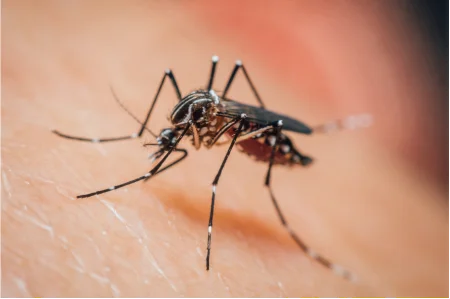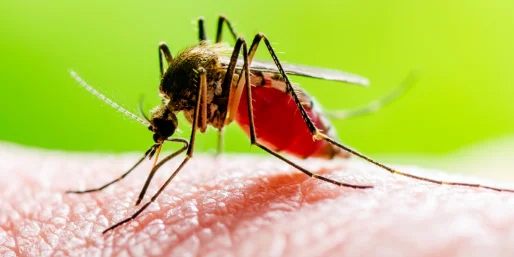Malaria is a serious vector-borne infection caused by the Plasmodium parasite, often presenting with fever, chills, headaches, muscle pain, and fatigue. It is transmitted through the bite of a female Anopheles mosquito carrying the parasite. Malaria is widespread, especially in sub-Saharan Africa, but is also common in parts of Asia. For effective malaria treatment in Mumbai, it is essential to visit a specialized malaria treatment hospital. The best hospital for malaria treatment offers timely care with antimalarial drugs to manage the infection and prevent complications like organ failure and death. Early diagnosis and treatment are vital for curing malaria and reducing the risk of severe outcomes. Proper preventive measures such as mosquito control and the use of bed nets also play an essential role in combating the disease.
What's Malaria?
Malaria is a vector-borne infection which is caused due to the Plasmodium parasite. The illness manifests as symptoms like fever, chills and headaches, as well as muscles pain, and fatigue. The illness is caused when a mosquito infected bites an individual, releasing the parasites to the bloodstream. Malaria isn’t transmitted by contacts with others, but is transmitted by mosquito bites.
How does Malaria occur?

Malaria is transmitted by female Anopheles mosquito that carries the Plasmodium parasite bites a person. The parasite infects bloodstreams and then travels through the liver to grows prior to infecting the red blood cells. The infection causes symptoms of malaria. Transmission may also occur via the sharing of needles or passing from mother to baby during pregnancy.
How Common is Malaria?
- Chills and fever: The most frequent symptoms, which occur during cycles.
- The fatigue and headache: feeling weak and suffering from severe headaches.
- Muscle pains as well joint discomfort: body discomfort and aches like flu symptoms.
- The vomiting and nausea: Some people may have gastrointestinal discomfort.
- Anemia: is caused by the degeneration of blood red cells.
- Malaria symptoms that are severe: If not treated symptoms will get worse which can lead to organ dysfunction as well as cerebral malaria and death.
- Combination therapy based on artemisinin (ACT): The most frequently utilized treatment for malaria that is not complicated.
- Chloroquine is effective for specific kinds of malaria, particularly Plasmodium Viax.
- Quinine is often used to treat extreme malaria.
- Primaquine: Given to eliminate dormant liver-stage parasites.
Malaria is an important health problem in several parts of the world. According to the World Health Organization (WHO) states that there are more than 200 million malaria cases across the globe and that most cases being found in sub-Saharan Africa. Despite efforts to fight malaria, it remains among the most significant causes of death and illness in affected regions, especially in children as well as pregnant mothers.
Signs and symptoms of Malaria
Malaria symptoms typically start within a few days following the mosquito bite. They include:
Treatment for Malaria
Malaria can be treated by antimalarial medication. The kind of treatment you receive will depend in the extent of condition and the type of Plasmodium that is involved. The most common treatments are:
The treatment must be initiated immediately to avoid any complications. In the case of severe complications hospitalization is sometimes required and intravenous drugs might be needed. Prevention of malaria is essential and includes measures such as using mosquito nets treated with insecticides as well as wearing protective clothing and using insect repellents to limit mosquito bites.




